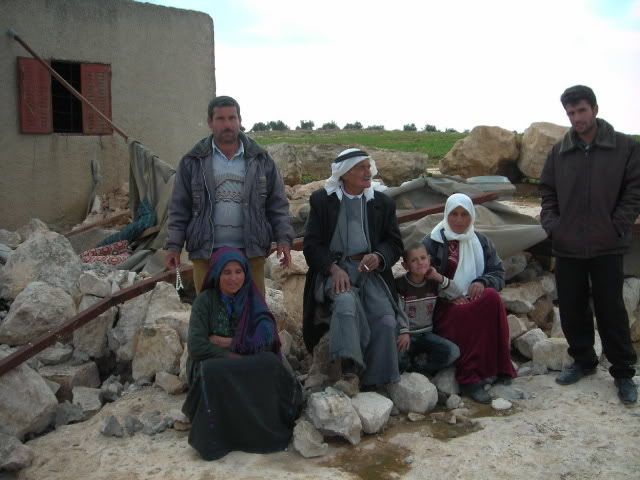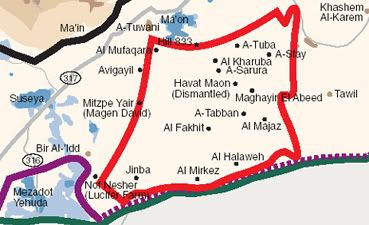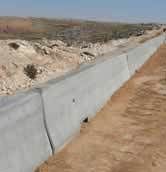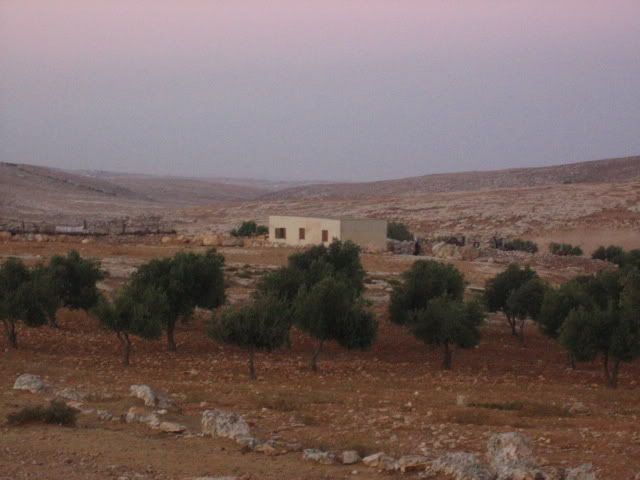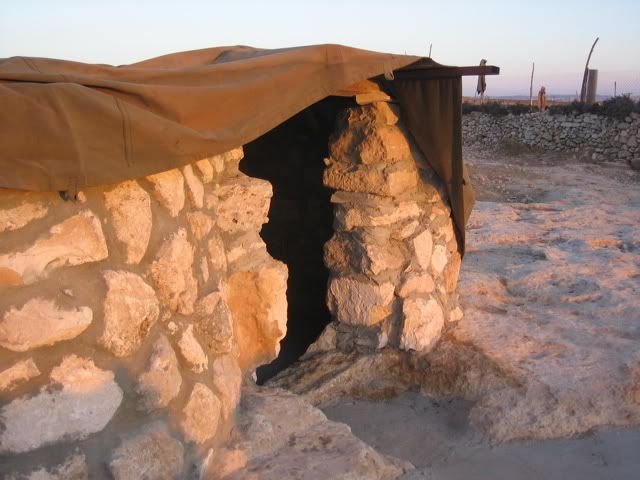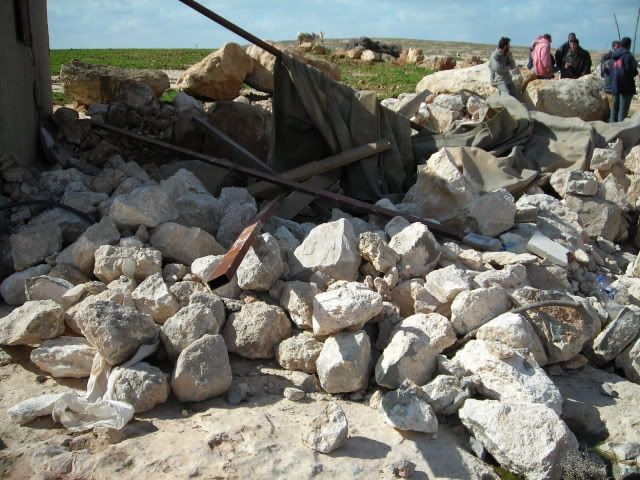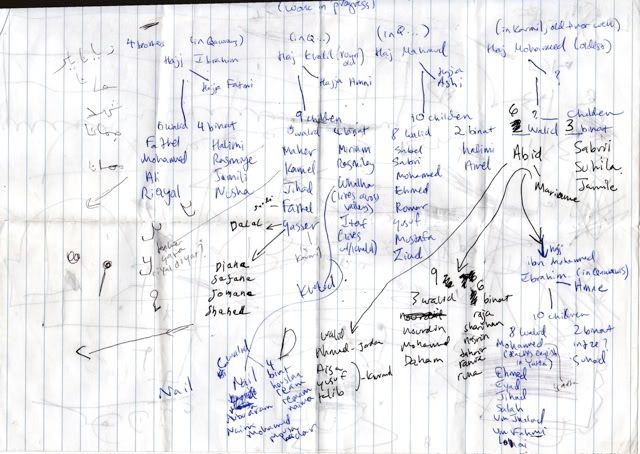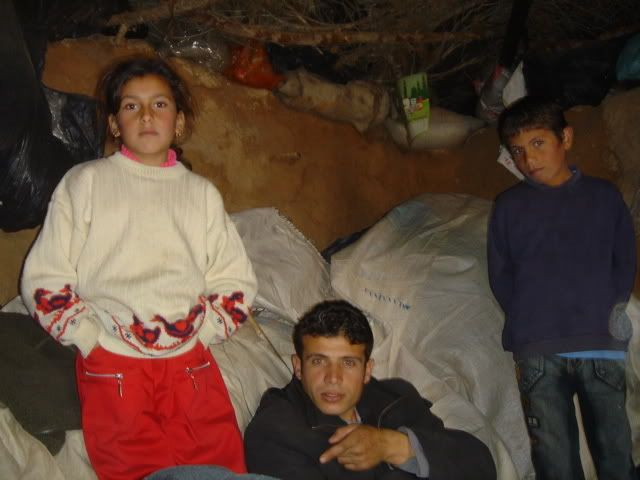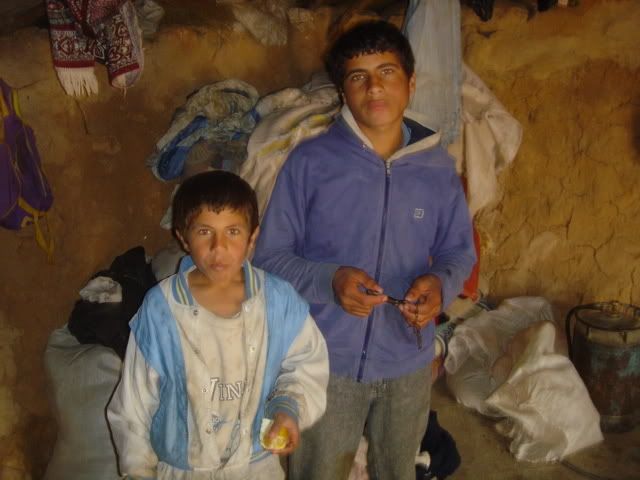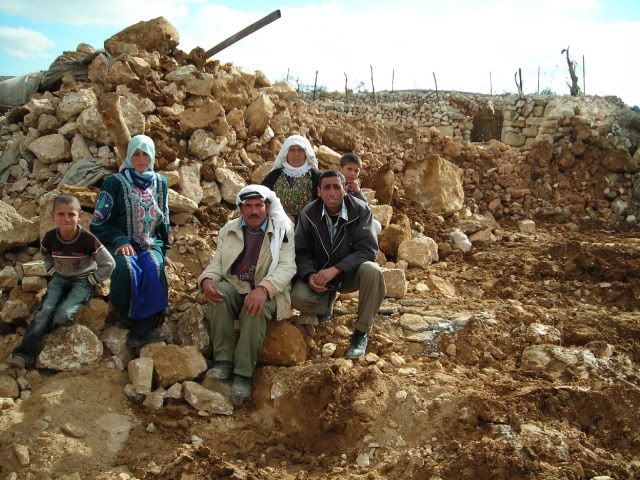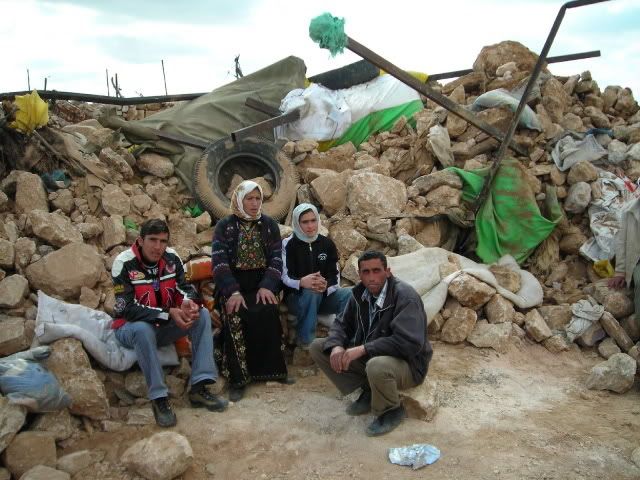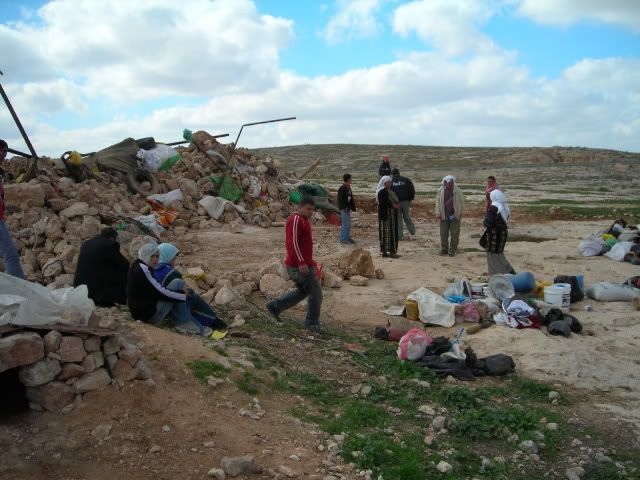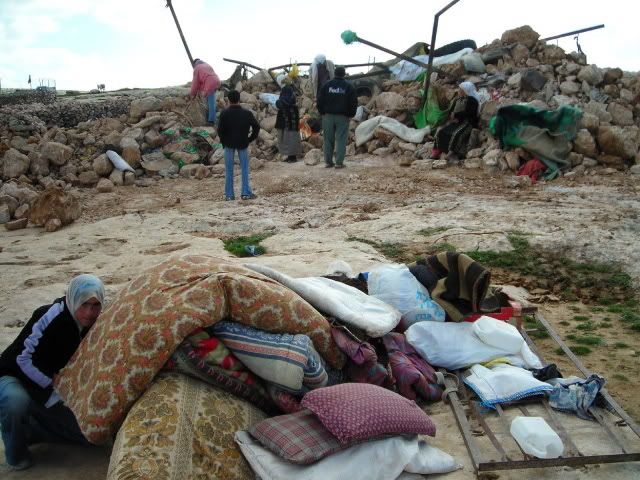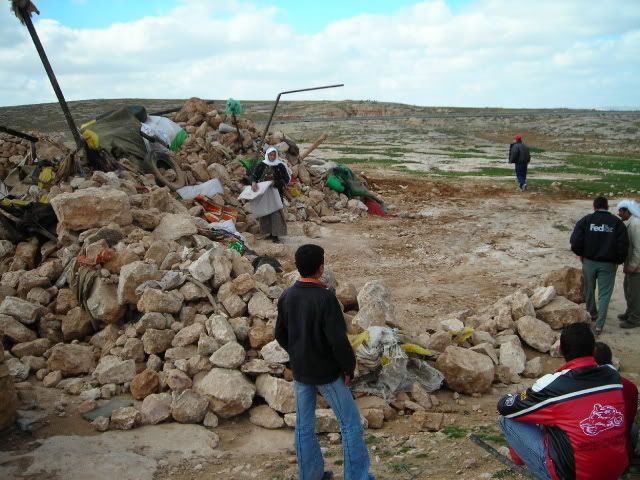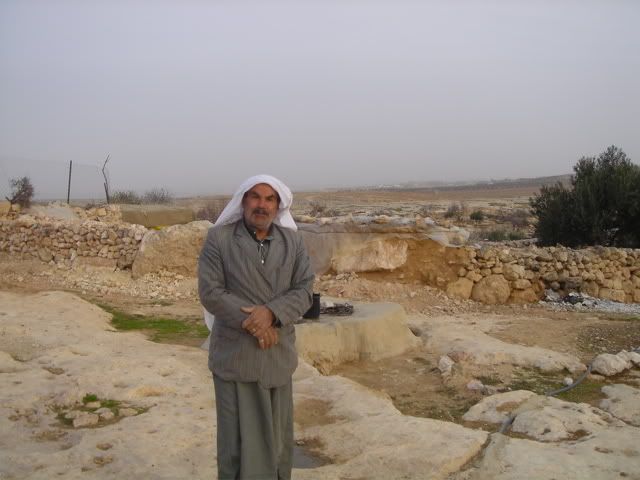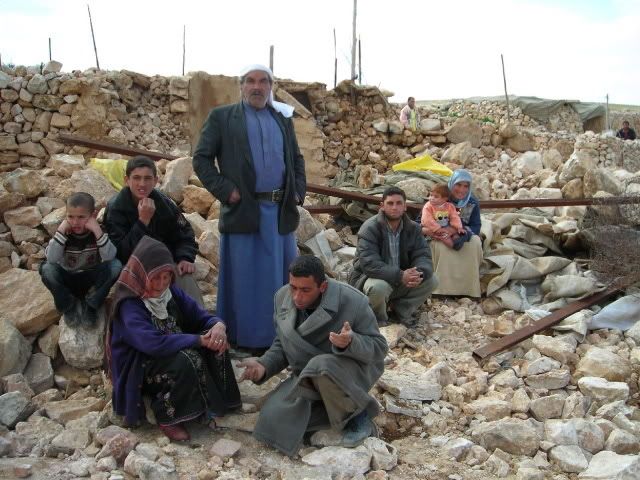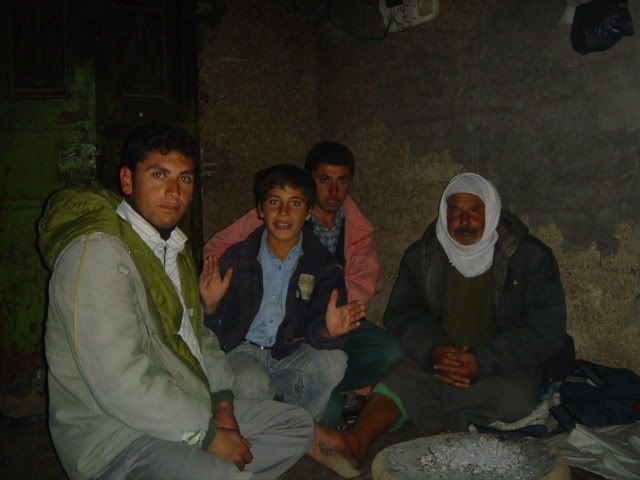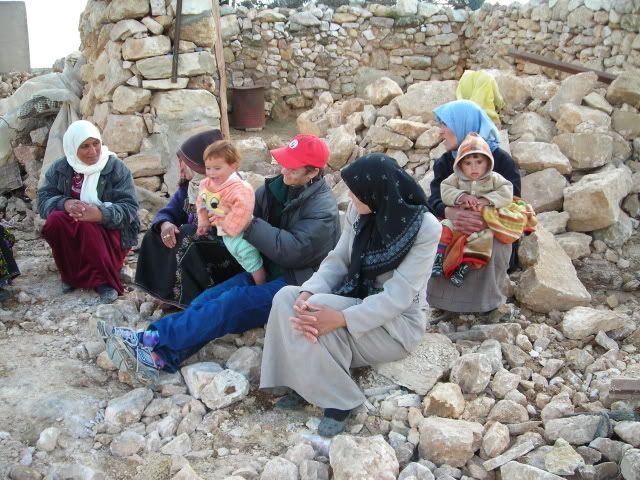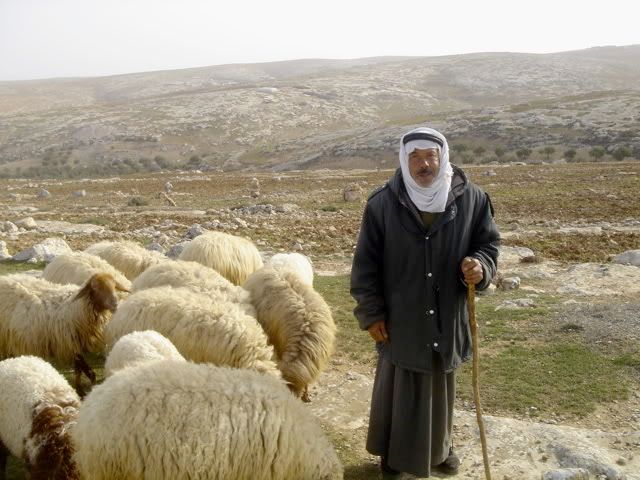What follows is the compilation of evidence, appropriately sourced, put together to satisfy the request for "extraordinary evidence."
In fact, historians of the 1948 generally agree on the basic point that Zionist armies took advantage of their military superiority over Palestinians and Arab armies in order to carry out a pre-existing objective of expelling non-Jewish peoples from the Jewish state-in-creation.
Here are some relevant cites from my previous diary regarding Israeli responsibility for the crime of ethnic cleansing. Here's a quote from Ben-Ami's book, cited by Amy Goodman in her first question in the interview:
The reality on the ground was that of an Arab community in a state of terror facing a ruthless Israeli army whose path to victory was paved not only by its exploits against the regular Arab armies, but also by the intimidation and at times atrocities and massacres it perpetrated against the civilian Arab community. A panic-stricken Arab community was uprooted under the impact of massacres that would be carved into the Arabs' monument of grief and hatred.
This one comes from Ben-Ami himself, also cited in the previous diary, in answer to one of Goodman's questions:
I am trying to be as fair as possible when I read the past, but it's a very interesting point, the one that you make here, about us trying to obliterate the memory of our war against the Palestinians, and the whole Israeli 1948 mythology is based on our war against the invading Arab armies, less so against the Palestinians, who were the weaker side in that confrontation, because it didn't serve the myth of the creation of the state and of the nation.
The following quote, from Finkelstein, didn't make it into that earlier diary, but you can find it at the original interview:
There is pretty much a consensus on what happened during what you can call the foundational period, from the first Zionist settlements at the end of the 19th century 'til 1948. There, there is pretty much of a consensus. And I think Mr. Ben-Ami, in his first 50 pages, accurately renders what that consensus is.
I would just add a couple of points he makes, but just to round out the picture. He starts out by saying that the central Zionist dilemma was they wanted to create a predominantly Jewish state in an area which was overwhelmingly not Jewish, and he cites the figure, I think 1906 there were 700,000 Arabs, 55,000 Jews, and even of those 55,000 Jews, only a handful were Zionists. So that's the dilemma. How do you create a Jewish state in area which is overwhelmingly not Jewish?
Now, the Israeli historian Benny Morris, at one point, he said there are only two ways you can resolve this dilemma. One, you can create what he called the South African way, that is, create a Jewish state and disenfranchise the indigenous population. That's one way. The second way is what he calls the way of transfer. That is, you kick the indigenous population out, basically what we did in North America.
Now, as Mr. Ben-Ami correctly points out, by the 1930s the Zionist movement had reached a consensus that the way to resolve the dilemma is the way of transfer. You throw the Palestinians out. You can't do that anytime, because there are moral problems and international problems. You have to wait for the right moment. And the right moment comes in 1948. Under the cover of war, you have the opportunity to expel the indigenous population.
I was kind of surprised that Mr. Ben-Ami goes beyond what many Israeli historians acknowledge. Someone like Benny Morris will say, "Yes, Palestinians were ethnically cleansed in 1948." That's Benny Morris's expression. But he says it was an accident of war. There are wars, people get dispossessed. Mr. Ben-Ami, no, he will go further. He said you can see pretty clearly that they intended to expel the Palestinians. The opportunity came along, and they did so. Now, those are the facts.
Finkelstein notes here that not all historians agree with Ben-Ami and himself on the intentionality of Israel's ethnic cleansing, but he only cites Benny Morris as dissenting. Morris, of course, is on record that the ethnic cleansing was a good thing, and the only real problem with it is that Ben-Gurion did not go far enough -- that he left a substantial number of Palestinians inside the country:
[Q] I’m not sure I understand. Are you saying that Ben-Gurion erred in expelling too few Arabs?
[Benny Morris] If he was already engaged in expulsion, maybe he should have done a complete job. I know that this stuns the Arabs and the liberals and the politically correct types. But my feeling is that this place would be quieter and know less suffering if the matter had been resolved once and for all. If Ben-Gurion had carried out a large expulsion and cleansed the whole country - the whole Land of Israel, as far as the Jordan River. It may yet turn out that this was his fatal mistake. If he had carried out a full expulsion - rather than a partial one - he would have stabilized the State of Israel for generations.
Israeli sociologist Baruch Kimmerling, whose 1970s dissertation and subsequent book was the first scholarly treatment of Israeli ethnic cleansing, has written the following in a 2004 online essay:
The conclusion was that, as in many other cases, what seemed at first glance a pure and limited military doctrine, proved itself in the case of "Plan D" to comprise far-reaching measures that lead to a complete demographic, ethnic, social and political transformation of Palestine. Implementing the spirit of this doctrine, the Jewish military forces conquered about 20,000 square kilometers of territory (compared with the 14,000 square kilometers granted them by the UN Partition Resolution) and purified them almost completely from their Arab inhabitants. About 800,000 Arab inhabitants lived on the territories before they fell under Jewish control following the 1948 war. Fewer than 100,000 Arabs remained there under Jewish control after the cease fire. An additional 50,000 were included within the Israeli state’s territory following the Israeli-Jordan’s armistice agreements that transferred several villages to Israeli rule.
The military doctrine, the base of Plan D, clearly reflected the local Zionist ideological aspirations to acquire a maximal Jewish territorial continuum, cleansed from Arab presence, as a necessary condition for establishing an exclusive Jewish nation-state.
Interestingly, in his 2003 book (co-written with Joel Migdal), Kimmerling took a much more skeptical view of Plan D:
Was there, indeed, a Zionist master plan to expel the Palestinians? Walid Khalidi, among others, cites Zionist talk, even before the fighting, of population transfer, as well as other pieces of evidence that support the existence of such a plan....
The evidence is far more equivocal than Khalidi suggests. Plan Dalet itself was full of inner contradictions, referring to both expulsion of Arabs and their administration in secured areas. Israeli leaders were aware that mass expulsions, population exchanges, and huge movements of people had long been recognized practices during and after international wars... But such abstract musing was not responsible for the shattering of the Palestinian community (Baruch Kimmerling and Joel Migdal, The Palestinian People: A History (Cambridge, MA: Harvard University Press, 2003), p. 163).
I cite that as an earlier example of Kimmerling's writing. Today, based on that online essay, he appears to accept the thesis that Plan D was in fact a master plan for the expulsion of the Palestinians.
Finally, Ilan Pappe's 2006 book The Ethnic Cleansing of Palestine bears mention here. Pappe is perhaps the most radical of the New Historians -- the group of Israelis including Morris and Kimmerling who first began to revise the country's early history, and whose solid archival work has led to the emerging new consensus on the course of the Independence War. Pappe holds that Zionist actions during the war are directly comparable to Serbian cleansing campaigns in Bosnia-Herzogovina and Kosovo, and that the Israelis responsible for those actions should be judged on a standard similar to the one used for Milosevic and Mladic.
In sum, there are no extraordinary claims here. This is simply the consensus out there among Israeli and other Jewish academics who have studied this stuff.
